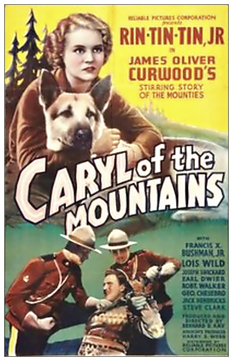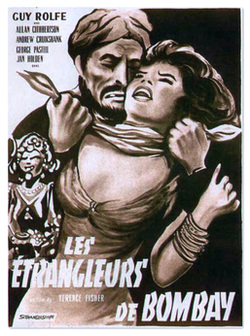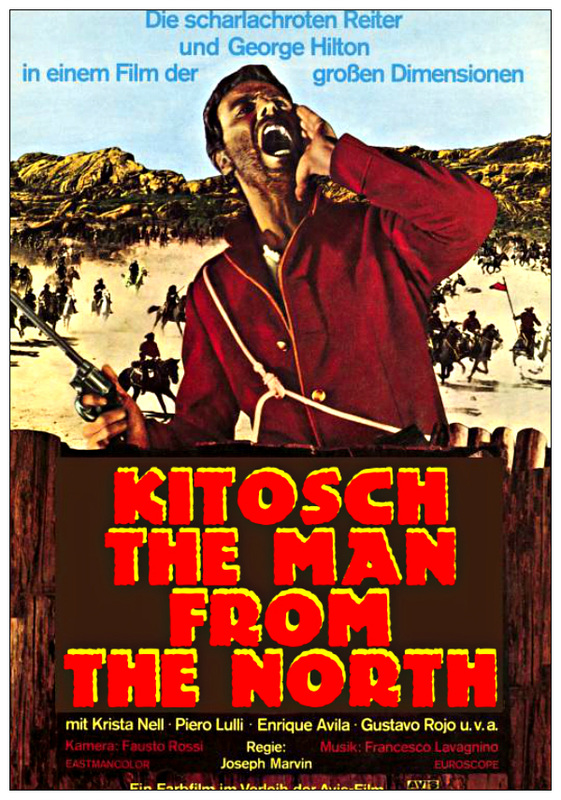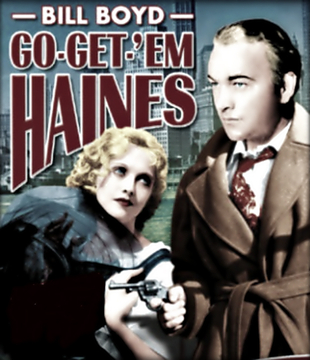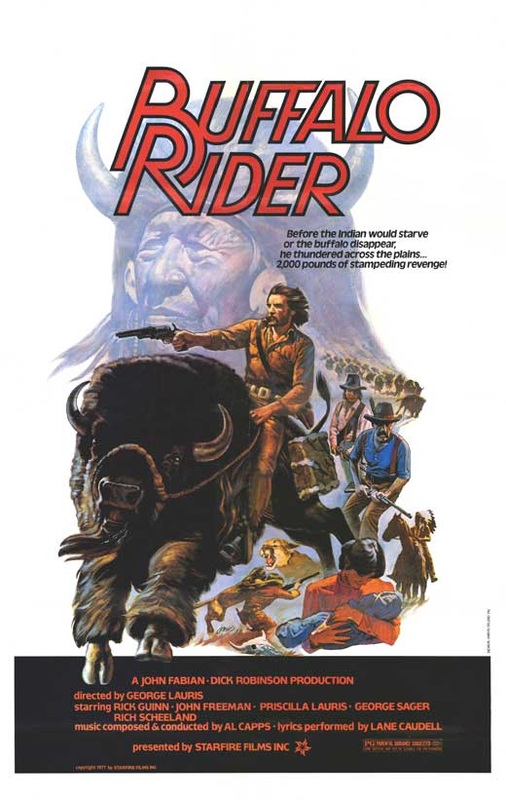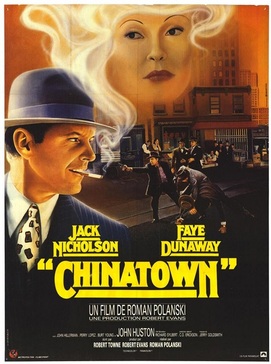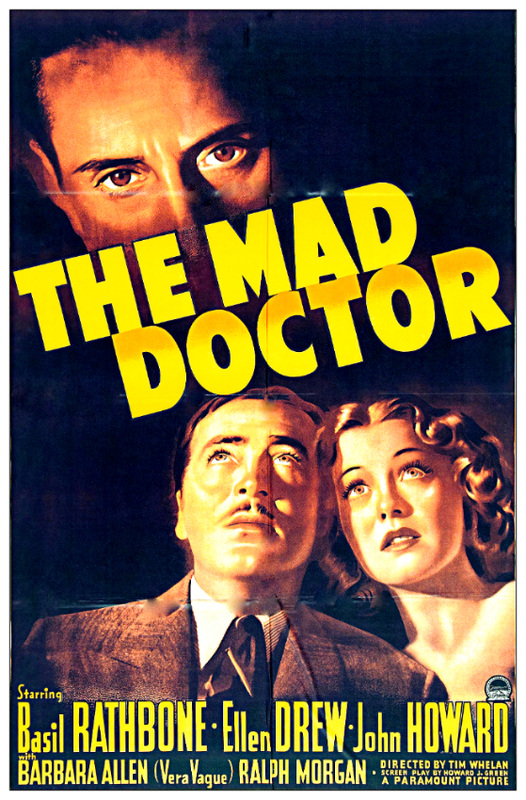| The men who govern India...more power to them and her! ...are few. Those who stand in their way and pretend to help them with a flood of words are a host. And from the host goes up an endless cry that India is the home of thugs, and of three hundred million hungry ones. The men who know...and Athelstan King might claim to know a little...answer that she is the original home of chivalry and the modern mistress of as many decent, gallant, native gentlemen as ever graced a page of history. Talbot Mundy ~ King of the Khyber Rifles |
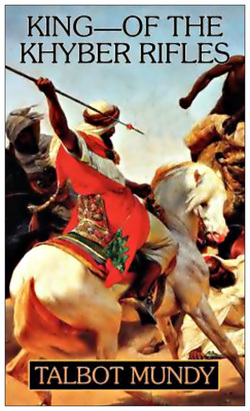
The protagonist of the novel is Captain Athelstan King, an agent of her majesty in what was at that time northern India (now Afghanistan and Pakistan) during the first world war. As in reality, the war was in mid-swing during the novel, and the Germans and Turks were determined to foster unrest in the tribal areas to further burden their British opponents. As with such writers as John Buchan, tales of the Empire's military struggles across the globe were very popular among British youth. That seems to be a traditional subject at the time, as both the Boer and Crimean wars generated their own exciting literary output; this new war, being called "the war to end all wars" did so on a grand scale, and would continue to inspire both prose and film for decades to come.
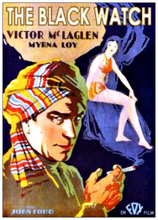
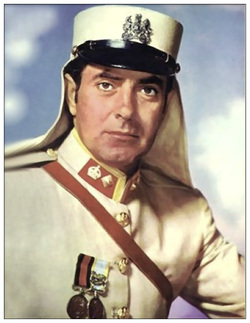
Now, for lovers of the book, it would be a mistake to come to the film thinking that they're the same animal. Though they share some of the same cosmetic features, the film has been altered to a pretty large degree. It has been transformed into the film version, which is fine, and I believe the changes make it more suitable for the simpler needs of the cinematic experience, where visuals and greatly delivered dialogue oftentimes do the work of a novel's detail and complexity of plot. Apropos of my earlier comment, the film is a bit more Rudyard Kipling to the book's H. Rider Haggard, which, in this case, is a good thing.
Power's King is a half-caste; his father was English, and his mother was an Afghan Muslim. Thus, he speaks the Pashto language of the Afghan tribal people, and he is friendly to them...so long as they are subordinate to British rule. King, after all, is the Queen's man.
The villain of the story (though ENTIRELY different from the novel), is the "fanatical" tribal bandit Kurram Khan, who, along with the Islamic Mullahs in the mountain areas, is fomenting rebellion in the people of the hills...by any brutal means necessary. He is portrayed here by the brilliant Guy Rolfe, who, it seems, played more villains than anything else, by far! In fact, in the same year as King of the Khyber Rifles, he played the baddie in another orientalist fantasy, The Veils of Baghdad (as the evil Kasseim), as well as Prince John in Ivanhoe, the year before! It goes without saying that his villain's soliloquies are maniacally well-practiced and insidious. He's very much the Osama Bin Laden of the piece, and much like that real Mujahid, his martial excesses are telegraphed to the audience in the form of a goggle-eyed, power-mad (hehehe), inhuman monster...with no normal human reason for opposing the Empire.
I was very impressed by the detail of the film, and by the nods to local colour and detail. The Pashto language, like Dari, the other most common language in Afghanistan, is somewhat similar to the Farsi language spoken in Iran. I understand a good deal of Farsi, as well as urdu and Arabic, and it seems to me that the dialogue of the tribal characters in the film was appropriate, if not entirely correct. I also noticed a few regional colloquialisms used, which were gratifying; King says of a defector from Kurram Khan's ranks as wanting to "eat British salt", meaning that he wished to earn his sustenance in the service of the Empire...a folk expression heard as far away as the Punjab.
I was also impressed by the philosophical challenges to imperialism throughout the movie. Athelstan King, as the son of a Muslim woman, is treated quite poorly by the political infrastructure and by it's agents. He's denied invitations to officers' parties, and even loses a roommate when a fellow officer learns of his racial (and possibly spiritual) mix. The positive portrayals of Muslims in this film are a pleasant surprise, in spite of some stereotyping, as well as the complexities of the local political perspective. Not to drag contemporary politics into a simple movie review, but the moral problems raised by this simple adventure story are very timely to the issues that the United states and Britain still face in that part of the world. It shows how the presence of a foreign element, determined to change and control an area, can create increasingly more hostile insurrections and challenges to that outsider influence.
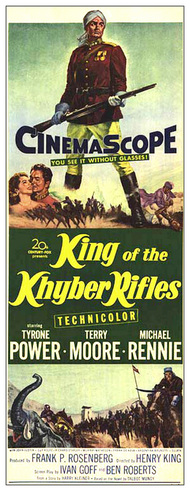
The director of this amazing picture is the somewhat ironically-named Henry King. King was an amazing critter in his own right, having over a hundred acting roles under his belt from the early days of film, as well as a long and prolific career as a director. Besides King of the Khyber Rifles, King directed Tyrone Power in such amazing movies as The Untamed (1955), Prince of Foxes (1949), The Black Swan (1942), and The Sun Also Rises (1957), as well as such great actors as Errol Flynn, Eva Gardner, Spencer Tracy, Gordon MacRae, Cameron Mitchell, and (in my opinion) most effectively with Gregory Peck, who did many of his best films with King.
Honestly, with the possible exception of Errol Flynn, I can't think of a more well-rounded actor for action pictures of his era than Power; his gravitas, masculinity and charm are possessing, and that leadership vibe, so often lost to today's actors, are his in spades. His characters are people that one would follow "once more, unto the breach", and his King of the Khyber Rifles is no less so. It's a Powerhouse film that you shouldn't live without!
| If you would like to read the fantastic novel before (or after) you see the film, here is a public domain eBook for your Kindle! |
| ||||
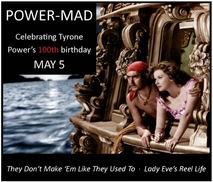 This is my entry in celebration of Tyrone Power's 100th birthday, with the POWER-MAD Blogathon, hosted by They Don't Make 'em Like They Used To, and Lady Eve's Reel Life! Click on the image below to see other blogathon writers waxing poetic about Tyrone Power! |
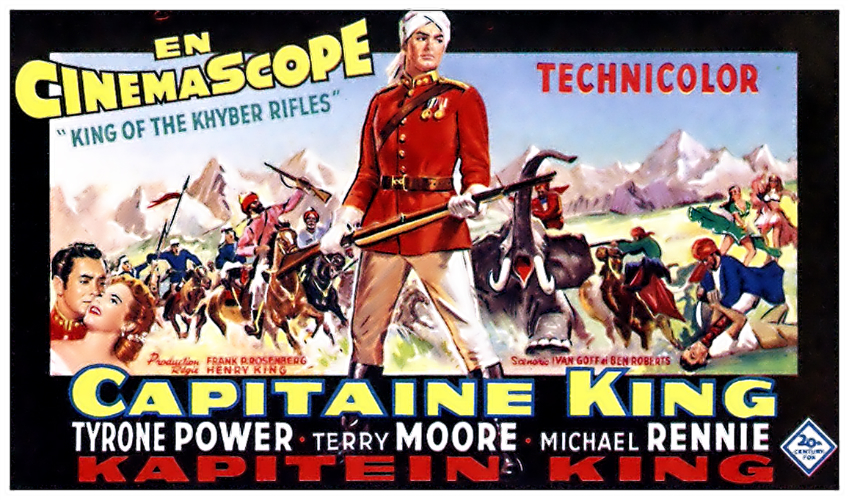
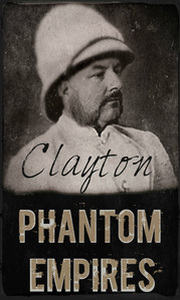
 RSS Feed
RSS Feed
